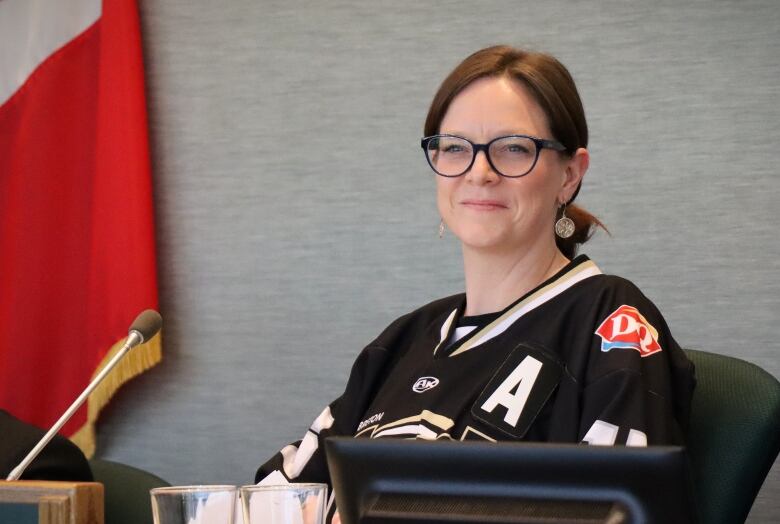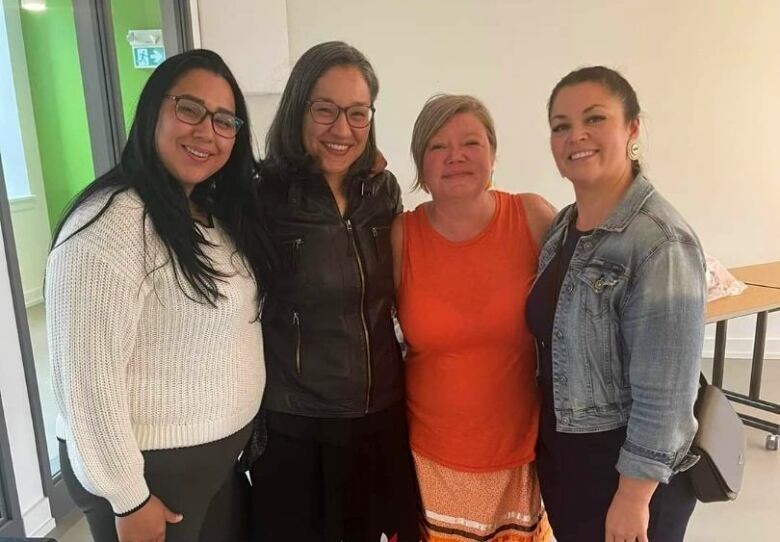CBRM wants 266-year-old scalping proclamation removed from the books
Council has voted unanimously to ask Governor General to have proclamation repealed

The mayor and council of the Cape Breton Regional Municipality have voted unanimously to ask Gov. Gen.Mary Simon to have a 1756 proclamation offering abounty for Mi'kmawscalps repealed.
Mayor Amanda McDougall saidshe found out the proclamation is still on the booksafter taking part in a learningexercise arranged by Tanya Johnson-MacVicar, the municipality'sL'nuadviser.
McDougallsaid while the Peace and Friendship Treatiesrender the proclamation inoperative, it "shook" her to know that the language still exists.
"What if somebody could use that as a loophole in some sort of horrendous act?" she said. "Why not use our powers as elected officials to influence policy and be advocates?"

Johnson-MacVicar said McDougall indicated on the morning after the exercise that she would put forward a motion to have the proclamation repealed.
"I didn't think that it would happen as fast as it did,"Johnson-MacVicar told CBC Radio's Mainstreet Nova Scotia on Thursday.
"It's because of the people that I work with, there really isa thirst to find out what can be done and how that reconciliation can be done."

Johnson-MacVicarsaid elders have been trying for decades to have the proclamationremoved.
Christopher McCreery, the private secretary to Nova Scotia Lt.-Gov. Arthur LeBlanc, said in an email he was not aware of the council vote, but added the Governor General and lieutenant-governor would have to be given specific direction from the prime minister or the premier.
"Any actiontaken by the Crown in right of Canada to apologize, acknowledge, revoke or undertake any action would be done on advice of the duly elected government," McCreery wrote.
Simon is Canada's first Indigenous Governor General. Her office did not respond to a request for comment.
Nicolas Moquin, a spokesperson for Crown-Indigenous Relations and Northern Affairs Canada, saidin an emailthe "horrific order" was superseded by the Peace and Friendship Treaties.
Nova Scotia's then governor, Charles Lawrence, also signed a proclamation in 1760 ordering a cessation of hostilities between British officers and personnel against Indigenous peoplein the colony, the email said.
"As such, the order was not in effect at Confederation and did not become and is not a law of Canada," Moquin said.
"Both the Peace and Friendship Treaties and 1760 proclamation had the result of making the 1756 proclamation inoperative. It has no force or effect in law."
With files from Mainstreet Nova Scotia and Tom Ayers












_(720p).jpg)


 OFFICIAL HD MUSIC VIDEO.jpg)
.jpg)



























































































